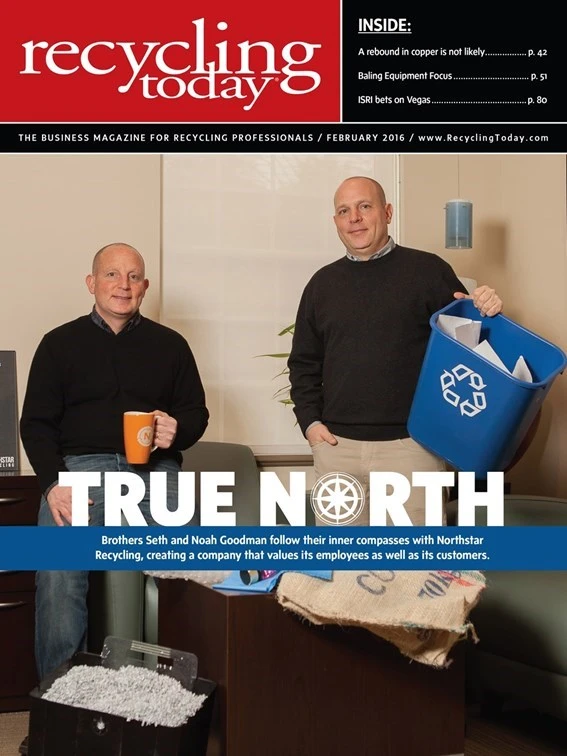According to the World Bank, crude oil prices will stay near their current lows for the rest of 2016 as warm winter weather in Europe and weaker-than-expected growth in China and other emerging economies reduce demand, keeping the average price of a barrel of crude oil at $37.
Plastics recyclers likely are not cheered by this news as prices for many resins have been declining over the last year along with crude oil prices, reflecting softer demand from China, in particular, and a glut of virgin material in some cases.
“Even if oil prices come back a little, it’s not going to be the same kind of a seller’s market,” an export broker based on the West Coast says.

He says export buyers are “very picky right now. If bales meet overseas buyers’ quality requirements, they will move at reasonable prices, the broker adds.
One reprocessor based in the Southwest U.S. describes markets for many recycled plastics as of late January as “ugly.” He says pricing for recycled plastics has declined by 30 percent to 50 percent, depending on the resin and grade, since the start of 2015.
The reprocessor adds that the market for PET (polyethylene terephthalate) is “extremely soft” as virgin material remains in oversupply.
The broker describes recycled PET pricing as being “pretty depressed.” He adds, “One of the biggest processors stopped buying late last year.”
Bales of PET bottles are selling for 9 cents per pound on the West Coast as of late January, he says, noting that the price is “a little low, but not unreasonable.”
The oversupply of virgin PET is likely to increase later in 2016, further affecting demand and pricing for recycled PET. M&G Chemicals says it plans to increase the integrated PET production capacity of its Corpus Christi, Texas, facility by more than 100,000 metric tons. This will give the plant a total PET production capacity of more than 1.1 million metric tons. The original capacity plan for Corpus Christi was 1 million metric tons of PET.
“Even if oil prices come back a little, it’s not going to be the same kind of a seller’s market.” – an export broker based on the West Coast
The facility currently is under construction and is scheduled to open in the second half of 2016.
The reprocessor based in the Southwest says pricing for polypropylene (PP) scrap has been relatively stable because the material does not suffer from the same oversupply situation with virgin resin as PET does.
He describes export demand as being stronger for postcommercial and postindustrial materials than it is for postconsumer material. “Where we have a match, we’re moving [material],” the reprocessor says, adding that Mexico, Asia and India are common destinations. He stresses that the company does not rely on brokers but sells direct to mills in these cases.
Lunar New Year celebrations in China mean exports to that country and other parts of Southeast Asia will be relatively quiet through most of February, the reprocessor says.
The broker based on the West Coast says, “Things in China are not great.” He adds that the market is still functioning but with “very depressed” prices, particularly for lower grade plastics or for mixed grades.
The broker says many of his suppliers are sitting on material, hoping for pricing to increase.
The reprocessor, on the other hand, says keeping material moving has been key for his company, even if prices are depressed.

Explore the February 2016 Issue
Check out more from this issue and find your next story to read.
Latest from Recycling Today
- Aqua Metals secures $1.5M loan, reports operational strides
- AF&PA urges veto of NY bill
- Aluminum Association includes recycling among 2025 policy priorities
- AISI applauds waterways spending bill
- Lux Research questions hydrogen’s transportation role
- Sonoco selling thermoformed, flexible packaging business to Toppan for $1.8B
- ReMA offers Superfund informational reports
- Hyster-Yale commits to US production





